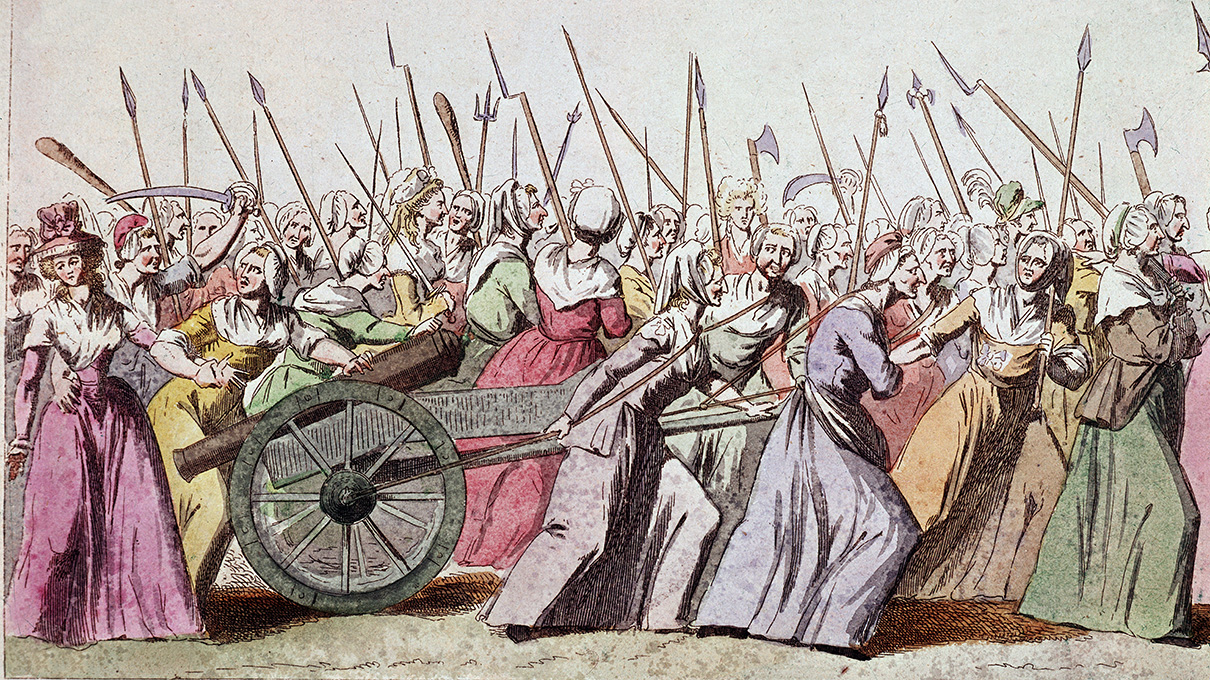Olympe de Gouges (b. 1748) was a leading female revolutionary. A butcher’s daughter, she believed that women had the same rights as men, though these rights had to be spelled out in terms of gender. In 1791 she wrote her Declaration of the Rights of Women and for the next two years demanded that the revolutionary government act upon it. In November 1793, the National Convention, worried that her demands would threaten the revolution by losing supporters for it, charged her with treason. Found guilty, she was sent to the guillotine.
Following are some of the basic rights set forth in the Declaration:
1. Woman is born free and remains equal to man in rights. Social distinctions can be founded only on general utility.
2. The goal of all political association is the preservation of the natural and imprescriptible rights of Woman and Man: These rights are liberty, property, security, and above all resistance to oppression.
3. The source of all sovereignty resides in the nation, which is nothing but the union of Woman and Man: No body, no individual, may exercise any authority not emanating expressly therefrom.
4. Liberty and justice consist of returning all that belongs to another; thus, the only limits on the exercise of woman’s natural rights are the perpetual tyranny wielded by men; these limits must be reformed by the law of nature and the law of reason.
5. The laws of nature and of reason prohibit all actions harmful to society: Anything not forbidden by these wise and divine laws, cannot be forbidden, and no one can be forced to do that which the law does not require.
6. The law should be the expression of the general will; all female and male citizens should concur either personally or by their representatives in its formulation; it should be the same for all: All female and male citizens are equal in its eyes, and equally entitled to all honors, places and public employments according to their abilities without any other distinction than that of their virtues and their talents.
7. No woman is an exception; she is accused, arrested, and detained in cases determined by law. Women, like men, obey this rigorous law.
8. The law should only impose those penalties which are strictly and absolutely necessary, and one may be punished only by a law that has been established and promulgated prior to the offense and legally applied to women.
9. Once a woman has been declared guilty, the law should be applied rigorously.
10. No one is to be harassed for their fundamental beliefs; a woman has the right to mount the scaffold; she also has the right to mount the rostrum, providing that her actions do not threaten lawful public order.

